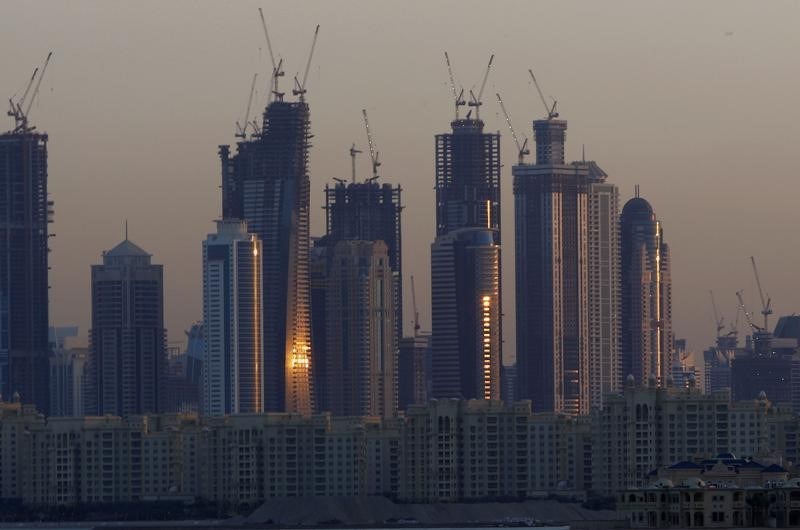 © Reuters. DAMAC Properties calls bottom for weakened Dubai real estate
© Reuters. DAMAC Properties calls bottom for weakened Dubai real estateBy Alexander Cornwell
DUBAI (Reuters) – Dubai’s real estate market faces another few quarters of “soft market conditions” before starting to rebound from late 2019, DAMAC Properties’ (DU:) chief financial officer said.
Residential prices in Dubai have fallen more than 15 percent since 2014 and this year DAMAC registered its worst quarter of booked sales since going public five years ago.
“There is a mood of positivity that we are closer to the end of the weak cycle … Fundamentally prices cannot go down much further,” DAMAC CFO Adil Taqi told Reuters on Tuesday at the annual Cityscape property exhibition in Dubai.
Rising oil prices, which have risen to four-year highs in 2018, and an increase in government spending could have a positive impact on the property market next year, Taqi said.
Dubai has little reliance on oil revenue, but it is a driver of regional wealth and economic growth and oil prices.
And this week the UAE announced its biggest ever federal budget, which while a fraction of overall government expenditure is a sign that the government aims to spend more actively to boost economic growth.
“I think (at the) end of 2019 and (in) 2020 we will begin to see winds of change,” Taqi said.
DAMAC has told regulators that it believes more capital being available through mortgages would be beneficial to the real estate industry, Taqi said.
Reuters reported on Sept. 24 that the UAE’s banking group was considering suggesting the Central Bank relax mortgage lending rules to stimulate the real estate market.
Taqi said the “the trend of the soft market” continued in the third quarter, but declined to discuss further ahead of the public disclosure.
DAMAC’s profit fell by around 46 percent in the April-June period, when it booked its worst quarter of sales.
Fusion Media or anyone involved with Fusion Media will not accept any liability for loss or damage as a result of reliance on the information including data, quotes, charts and buy/sell signals contained within this website. Please be fully informed regarding the risks and costs associated with trading the financial markets, it is one of the riskiest investment forms possible.
Source: Investing.com




























